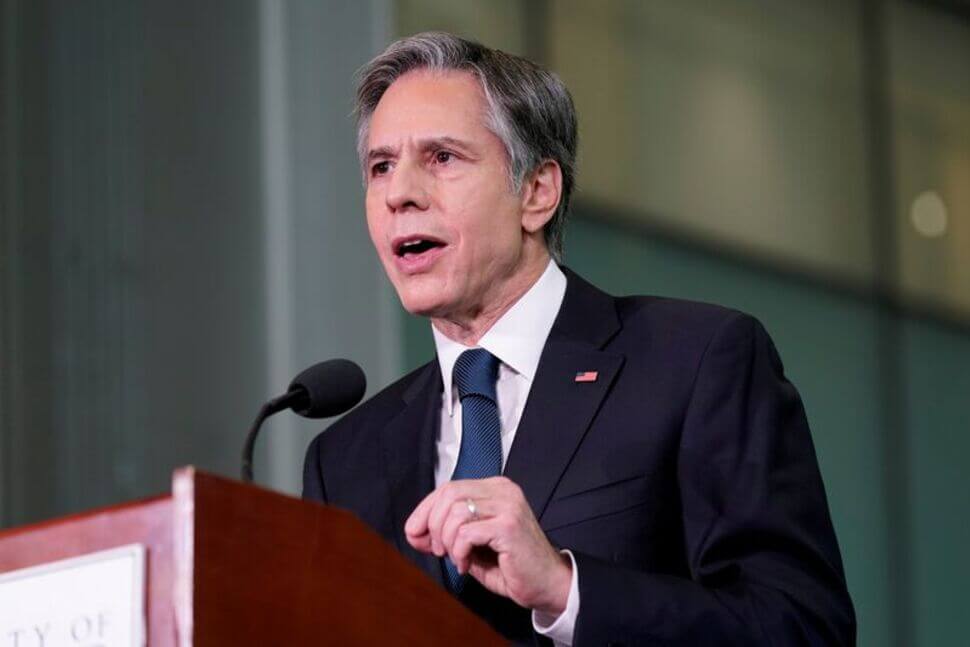On Monday, United States (US) Secretary of State Antony Blinken told the House of Representatives Foreign Affairs Committee that Washington would be re-evaluating its ties with Pakistan in the coming weeks. He was speaking at the first congressional hearing since the Taliban captured Kabul and the US withdrew completely from Afghanistan last month.
“Pakistan has a multiplicity of interests, [with] some that are in conflict with ours,” Blinken said, highlighting Pakistan’s duplicity in its relationship with the US vis-à-vis the Taliban. “It [Pakistan] is one that is involved hedging its bets constantly about the future of Afghanistan, it is one that’s involved harbouring members of the Taliban...it is one that’s also involved in different points of cooperation with us on counter-terrorism,” he claimed.
Blinken also called on Pakistan to deny legitimacy to the Taliban unless they meet international demands. He said relations between the US and Pakistan would be determined by the latter’s adherence to the global expectations. These include denying the Taliban legitimacy unless they fulfil their promises of allowing civilians to leave the region, protecting the rights of women and minorities, and not turning Afghanistan into a “haven of terrorism.” “Pakistan needs to line up with a broad majority of the international community in working towards those ends and in upholding those expectations,” Blinken said.
The US has been suspicious of Pakistan’s “deep ties” with the Taliban over the last 20 years and has accused the country of supporting the insurgent group and sheltering its members during the 2001 invasion of Afghanistan. Islamabad has denied these charges repeatedly.
Democratic Representative Joaquin Castro, a US lawmaker who has criticised Pakistan consistently over its association with terrorist groups, called on the government to reconsider Pakistan’s status as a major non-NATO ally, which gives Islamabad “privileged access to US weaponry.”
“For the reasons you [Castro] cited as well as others, this is one of the things we will be looking at in the day and weeks ahead, the role that Pakistan has played over the last 20 years and the role we would want to see it play in the coming years,” Blinken responded.
Likewise, Congressman Bill Keating said, “Islamabad has played by all accounts a negative role in Afghan affairs for decades. They created, named, and helped the Taliban regroup in 2010 in Pakistan. ISIS has strong ties with the Haqqani Network [an Afghan guerrilla insurgent group situated across the Pakistan-Afghanistan border] which is responsible for the death of US soldiers.” Talking about Pakistan’s actions in the past 20 years until last month, Keating said, “Congress has been told that relations with Pakistan are complicated. I say it is duplicitous.”
In a public address last month, Pakistani Prime Minister Imran Khan commended the Taliban’s takeover of Kabul, describing it as “breaking the chains of slavery.” Moreover, some reports recently suggested that Pakistan aided the Taliban offensive in Afghanistan’s Panjshir Valley “with 27 helicopters full of Pakistani Special Forces backed up by drone strikes.” Pakistani Foreign Office spokesperson Asim Iftikhar categorically denied the accusation, calling it a “mischievous propaganda campaign.”
Despite its consistent denial, Pakistan has been known to support the Taliban ever since its formative years. Pakistan was one of the first nations to recognise the Taliban government in the 1990s and the last to break formal ties with it in 2001. It also assisted in the Taliban’s reformation repeatedly throughout history as a stable escape point for the group’s leaders and provided them with medical supplies.
At the same time, however, Pakistan has been one of the biggest US allies in the Asia-Pacific region since the 1950s and is viewed as a “strategic benefit” for America. Pakistan has also catalysed the US dialogue with Afghanistan in the past two decades.
The US’ reassessment of its ties with Pakistan and reluctance to lose the latter as an ally stems from strategic value the bilateral relationship has yielded historically. In this light, according to Pakistani Brigadier Saleem Qamar Butt, “The US-Pakistan relationship ought to be based on the principles of equality, diplomatic reciprocity to counterparts, mutual respect and trust by shedding the prisms of Afghanistan and India.”
In an interview with CNN-News18 on Tuesday, Taliban spokesperson Mohammad Suhail Shaheen addressed questions about Pakistan’s involvement in forming government in Afghanistan. Shaheen said, “No country has any role. We have relations with both neighbouring and regional countries. We seek their cooperation in the construction of Afghanistan, but that doesn’t mean their interference in our internal matters.”
US to Reassess Relationship With Pakistan Over Role in Afghanistan, Blinken Says
Secretary of State Antony Blinken has said it is time for the United States to reassess its relationship with Pakistan as concerns grow over the latter’s “deep ties” with the Taliban.
September 14, 2021

United States Secretary of State Anthony Blinken. SOURCE: PATRICK SEMANSKY/REUTERS
